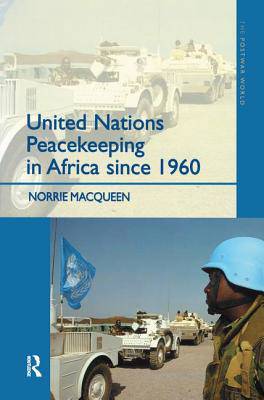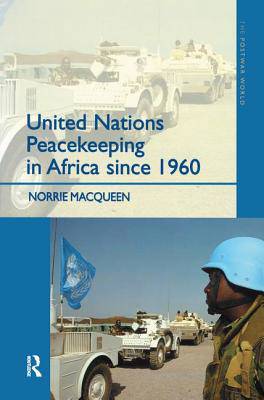
- Afhalen na 1 uur in een winkel met voorraad
- Gratis thuislevering in België vanaf € 30
- Ruim aanbod met 7 miljoen producten
- Afhalen na 1 uur in een winkel met voorraad
- Gratis thuislevering in België vanaf € 30
- Ruim aanbod met 7 miljoen producten
Omschrijving
United Nations Peacekeeping in Africa provides an exploration of United Nations military intervention in Africa, from its beginnings in the Congo in 1960 to the new operations of the twenty-first century.
The scene is set by an examination of the theoretical bases both of United Nations peacekeeping and of Africa's post-independence politics and international relations. The peacekeeping project in Africa is then described on a region by region basis - Central Africa, Southern Africa, West Africa, the Horn and Trans-Saharan Africa - with comparisons and contrasts within and between each part of Africa highlighted throughout. A number of key questions are considered:
how have developments in the broader international system affected conflicts in Africa?
what are the internal and external forces which have caused African states to 'fail' and 'collapse'?
how have external powers 'used' UN Peacekeeping in pursuit of their own political agendas?
what determines success and failure in African peacekeeping?
are there African solutions to African problems which could supplant UN involvement?
As well as providing an account of UN involvement, the book is concerned to explore the long historical origins of the African conflicts with which the UN has been engaged. Written in an engaging and accessible manner, United Nations Peacekeeping in Africa provides an invaluable examination of the complex issues surrounding UN interventions in Africa.
Specificaties
Betrokkenen
- Auteur(s):
- Uitgeverij:
Inhoud
- Aantal bladzijden:
- 328
- Taal:
- Engels
- Reeks:
Eigenschappen
- Productcode (EAN):
- 9781138144477
- Verschijningsdatum:
- 26/07/2016
- Uitvoering:
- Hardcover
- Formaat:
- Genaaid
- Afmetingen:
- 156 mm x 233 mm
- Gewicht:
- 607 g

Alleen bij Standaard Boekhandel
Beoordelingen
We publiceren alleen reviews die voldoen aan de voorwaarden voor reviews. Bekijk onze voorwaarden voor reviews.











